
Breathing Mechanics and Physiology: Why Better Breathing Means Better Health
We breathe over 20,000 times a day, yet most of us don’t think twice about it. But if you struggle with chronic pain, fatigue, stress,
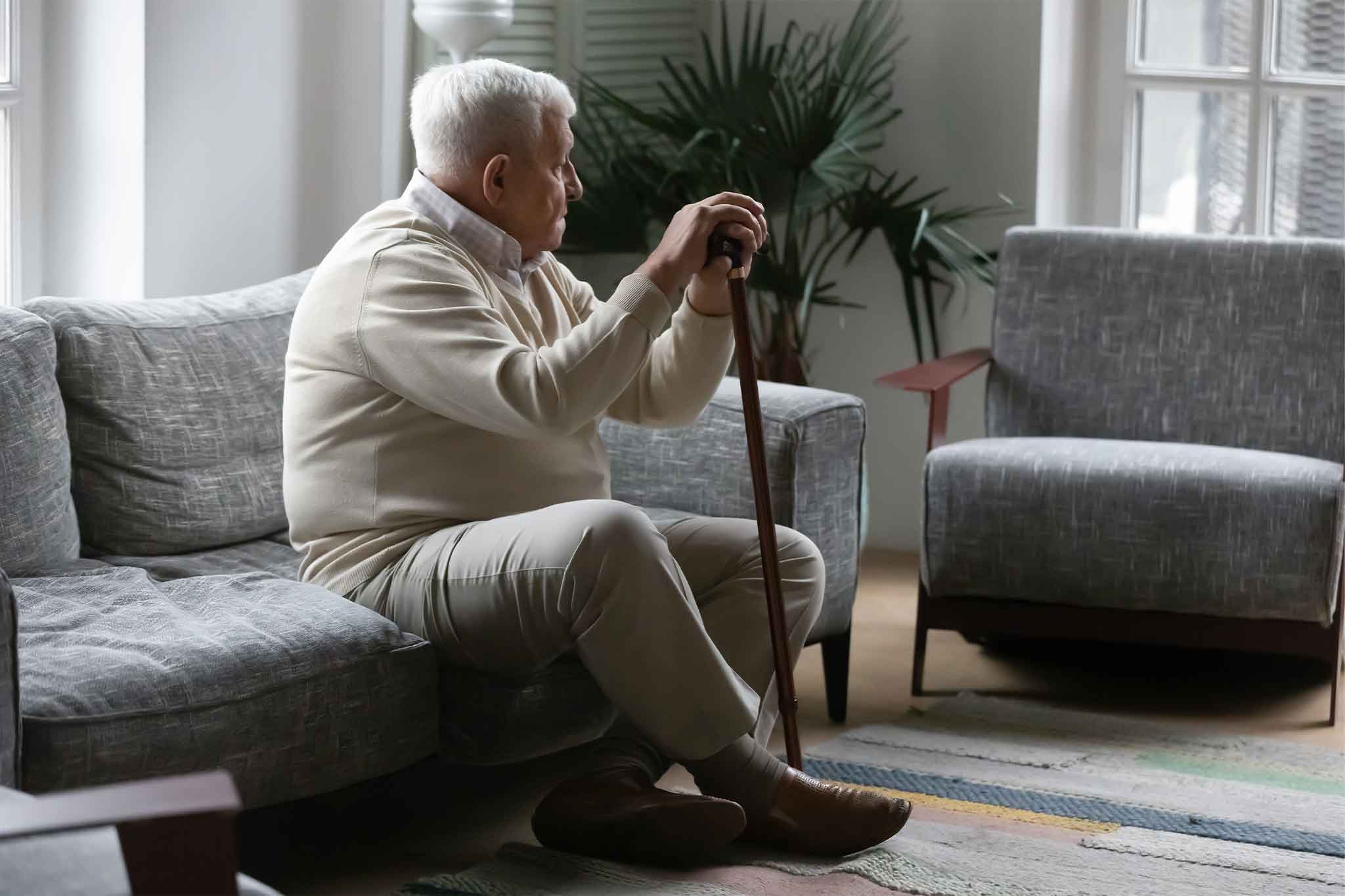
What does it take to have strong bones?
“Have a healthy diet, do more exercises and get plenty of sunshine!”
We have probably heard of or even given one of these recommendations to build up strong bones.
Why are strong bones important?
To prevent osteoporosis, of course.
Osteoporosis can be summarised very simply as such:
Amount of bone loss exceeds bone development.
This results in your bones becoming structurally weaker, making you more vulnerable to fractures when you fall.
There are several prominent risk factors for developing osteoporosis, such as:
However, some recent studies suggested that a pattern exists between psychological stress and osteoporosis.
How does stress affect our bones? Let’s find out together.

What does stress have to do with bones?
In a previous blog article, we briefly talked about the sympathetic nervous system (which is more active when you are stressed) and the parasympathetic nervous system (which is more active when you are relaxed).
We briefly discussed how prolonged sympathetic nervous system exposure can affect our physical and mental health.
Currently, research has suggested how stress can result in osteoporosis through several potential mechanisms. Let us look at each of them in a little more detail.
Currently, while a definitive mechanism has not been found, research studies have proposed that psychological stress can increase your risk of osteoporosis through several potential mechanisms. Let us look at each of them in a little more detail.

The sympathetic nervous system responds to stressful situations to stimulate how the body reacts.
Normally, this is a vital part of the bone-remodeling process.
For example, when we exercise, we are physically (and sometimes, psychologically) stressing our body.
This triggers our body to break down bone material after exercise so bone remodeling can take place to rebuild the bones, making them stronger.
Unfortunately, in chronic physical and psychological stress, our body does not stop breaking down bone and rebuilding cannot take place quickly enough.
When we are physically and psychologically stressed, the sympathetic nervous system causes glands in our brain and kidneys to release the stress hormones (such as cortisol and adrenaline) which prevent bone-forming cells (called osteoblast) from creating bone.
However, the stress hormones do not stop the cells that break down bone (called osteoclasts), meaning our body is breaking down bone more than building bone.
Over time, this can then lead to osteoporosis.

Our bones are made of primarily bone cells, connective tissue and reinforced by calcium (or rather, calcium phosphate).
However, for good quality bones, we also need other dietary components such as:
This means a healthy diet is essential for good bone health.
But what happens when we are in constant psychological stress?
We may not be eating well. For some of us, stress usually involves comfort food with poor nutritional value (even if they taste so good…).
Furthermore, when we are stressed, the sympathetic nervous system also affects our digestive system and absorption of nutrients by our body is further reduced.
This, in combination with a poor diet, means there are less components for us to build healthy, strong bones.
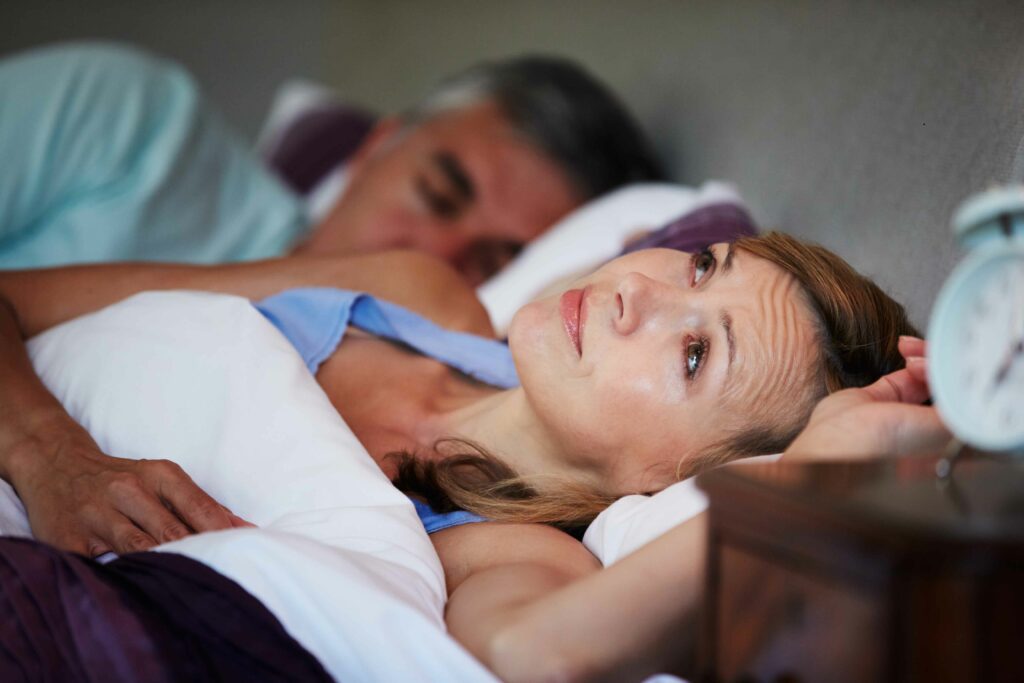
Sleep is wonderful. It is a time when our body and mind perform all the maintenance and repair work that we need after a long, hard day.
It is well-established in research that poor sleep quality is correlated with chronic diseases and mental health issues.
When it comes to bone health, sleep is also when bone-remodeling takes place. Earlier, we discussed how stress causes bone break down. After exercise, you need good sleep for your bones to rebuild and remodel to become stronger.
However, when we are stressed, we will not only get less sleep but our quality of sleep will also be poorer which in turn can create more psychological stress.
From this we can see how poor sleep quality can result in poor bone health and mental health.
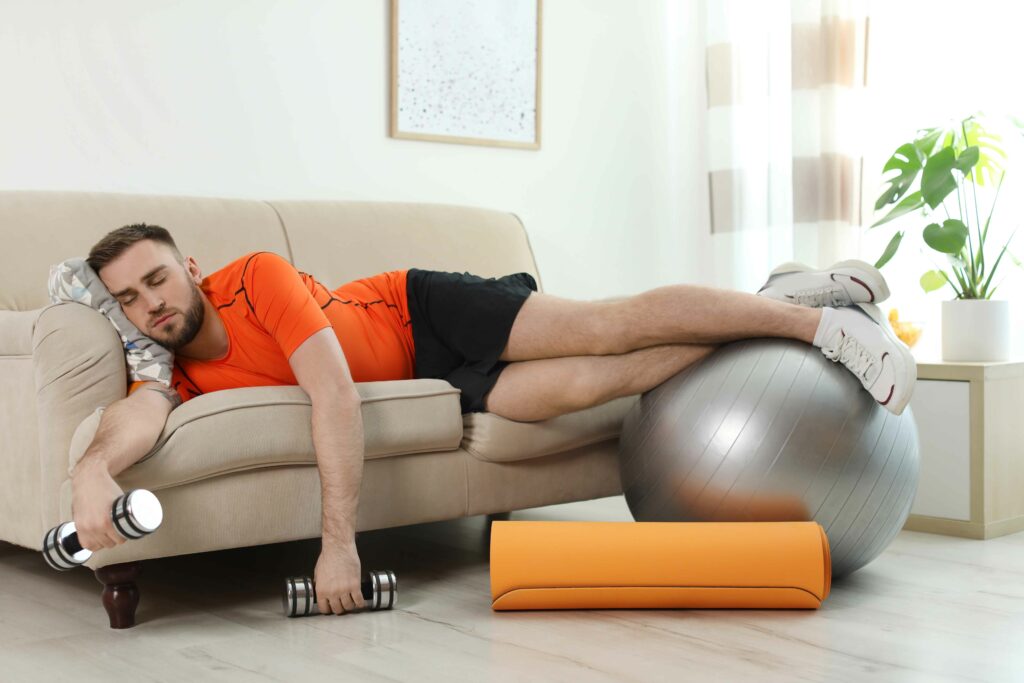
There are countless studies promoting the positive effects of exercise on physical and mental health.
This is why adequate physical activity and exercise is always recommended for bone health and preventing osteoporosis.
Our body models our bones according to the load we put on them. For instance, a long-distance runner’s body builds up bones to be able to withstand the forces from hundreds of thousands of steps.
However, while some of us may like to use exercise to relieve stress, when we are stressed, exercise may be the last thing we want to do.
Not only does stress reduce how much we can exercise, if we have not been eating and sleeping well (again, due to stress), we are more likely to say “yeah nah” to exercise after a long, grueling day.
In doing so, our body does not have a chance to build strong bones and prevent osteoporosis.
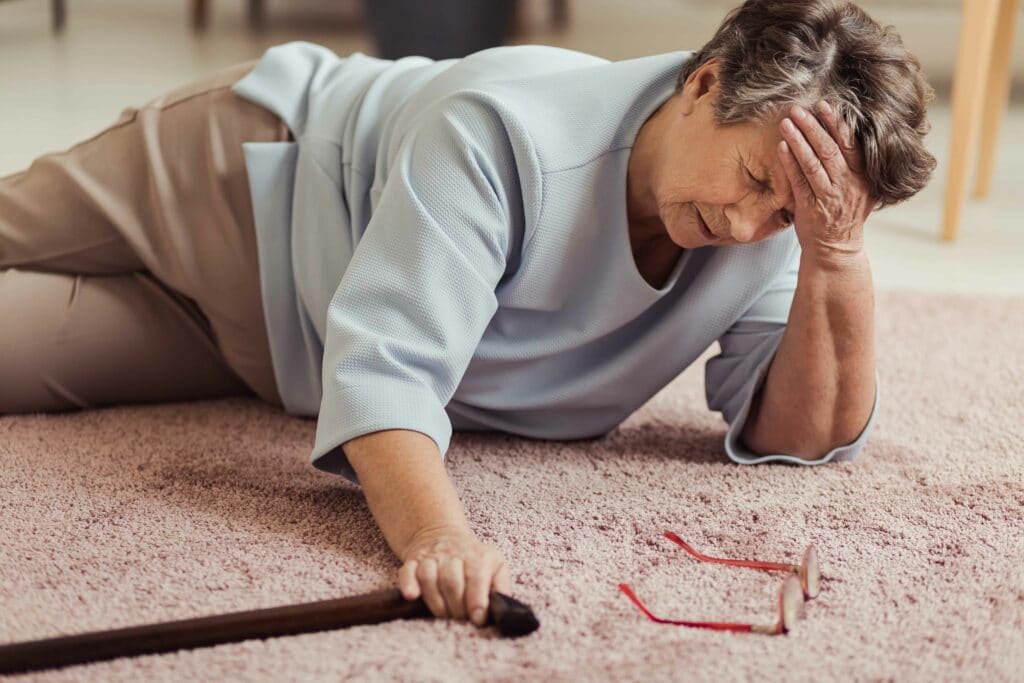
Having osteoporosis can result in more psychological stress.
The number one fear for anyone with osteoporosis is falls.
The reason is simple: A fall with weak, fragile bones means a fracture.
Fear of fractures often tie in with a fear of more falls, meaning the sufferer of osteoporosis often reduces their physical activity and exercise levels.
Unfortunately, they may also be unwilling to leave their homes (or in most cases, seats!) for social activities.
Not leaving the house also reduces the chance for good sunshine exposure.
Why is this important?
Sunlight is needed for the body to produce Vitamin D, which is essential for building strong bones!
Naturally, anyone staying home all day would also have a poorer quality of life and mental well-being.
With that, we have come full circle: Not only can psychological stress result in osteoporosis, the latter can result in the former too.

There is one fantastic way to break the negative cycle between psychological stress and osteoporosis:
Exercise.
Now hang on a minute, we just talked about how stress affects exercise. (Thank you for paying attention!) So how does a problem become a solution?
Earlier we talked about how stress may make you less likely to exercise. So how can we overcome this reluctance to exercise and why should we do so?
Osteoporosis is one of the most preventable diseases because you can treat it with exercise rehabilitation. The effects are even stronger when we combine exercise with a good diet, proper use of supplements and modifying your lifestyle habits!
Exercise helps more than just your bones; it prevents many chronic diseases, reduces stress and improves our sleep quality.
With that in mind, here are some ways you can introduce exercise into your life to reduce psychological stress and prevent osteoporosis:

To reverse the negative stress-osteoporosis cycle, start slow with a low-intensity exercise to gradually develop a pattern.
It can be as simple as sit-to-stands from your dining chair or walking around your backyard.
Low-impact and low-intensity exercise are also good for osteoporosis as it reduces the risk of fractures while loading your bones!
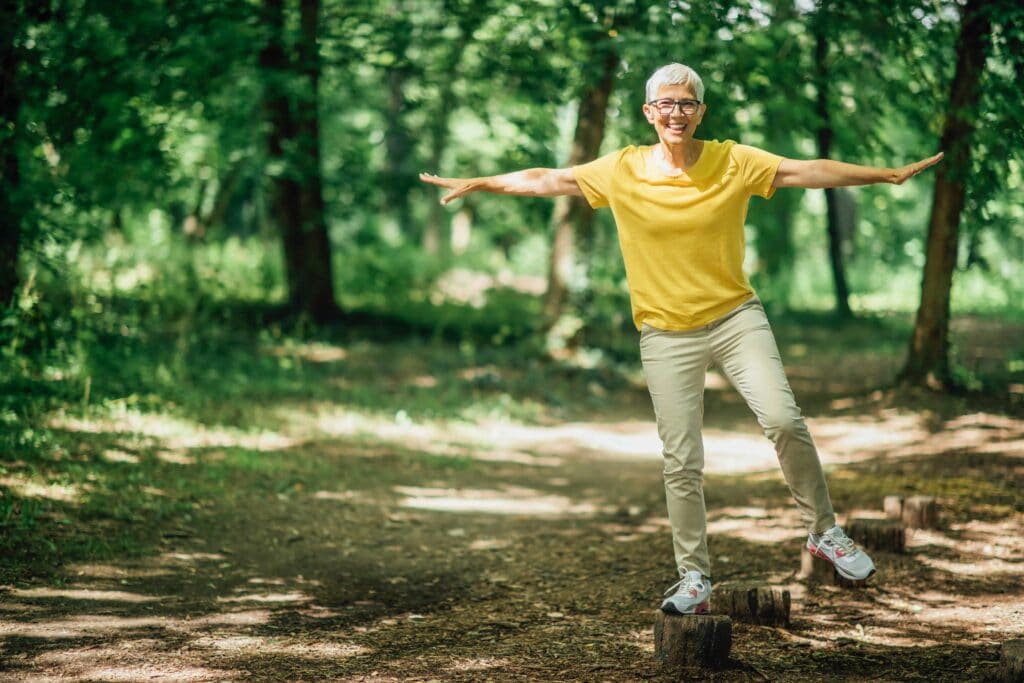
Earlier we talked about how a fear of falling results in psychological stress and avoiding physical activity.
Balance retraining and weight-shifting exercises like gentle yoga, Clinical Pilates and Tai Chi can help reduce falls while building up your bone mass.
As your balance improves, you can progress to going for walks around the block and to the park for some sunshine and fresh air!

A journey of a thousand miles begins with one step. And it continues with one step after another.
Every time you choose to exercise, you take another step towards better bone health and lesser psychological stress.
Being consistent does not mean you have to exercise to your limit every day. Every little bit helps, so set small and achievable goals every day on your journey to a better you!

Our body and mind takes time to change. It takes days, weeks or even months for us to see those changes.
Some may give up halfway through and lose any potential gains, but those who do not will reap the benefits of their efforts.
So give yourself time. You will thank yourself later.

Nothing gives you more encouragement than having a buddy or group to exercise with.
Having someone to exercise with can help motivate you and keep your spirits high. It can also be highly beneficial if you have a fear of falling to have someone looking out for you too.
Another good place to look for is exercise classes conducted by Physiotherapists. In this way you know you will be in safe and good hands!
Are you looking to start with a low-intensity exercise class that helps you build up strength while reducing stress?
If so, our new REFRESH class may be what you are looking for! For more information, check out this link on how to book a spot!

We breathe over 20,000 times a day, yet most of us don’t think twice about it. But if you struggle with chronic pain, fatigue, stress,
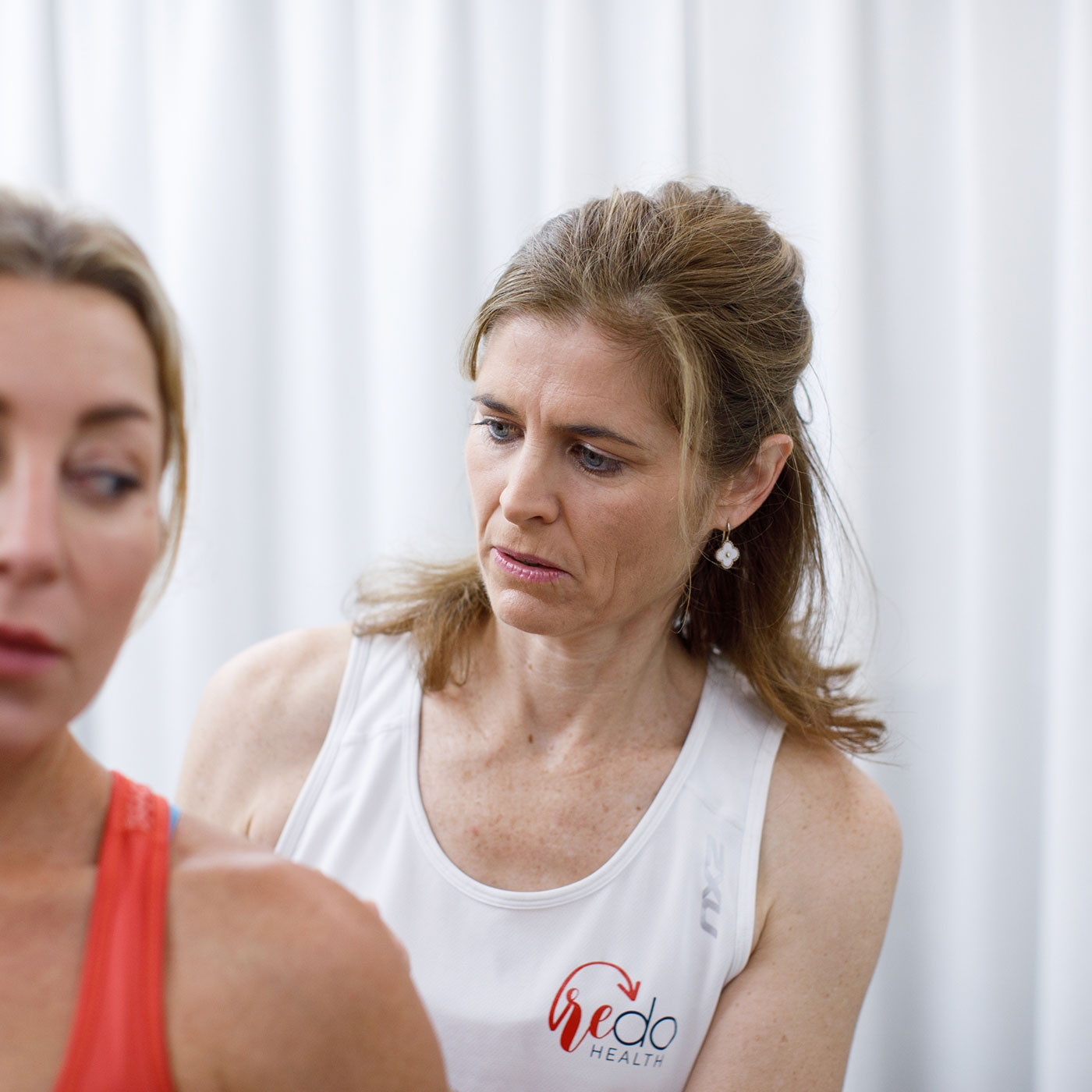
From Melinda… For people who come to my classes and clients who have been seeing me for a while, may have heard some of the

Meet Susan Susan recently suffered a fall attempting to lift a 2.5kg bag of soil overhead in her garden shed when she felt her leg
Sign Up Below To Get Your Free RedoHealth Guide Now

By registering, you agree to receive SMS and email communications from RedoHealth. No spam guaranteed. Unsubscribe at anytime.